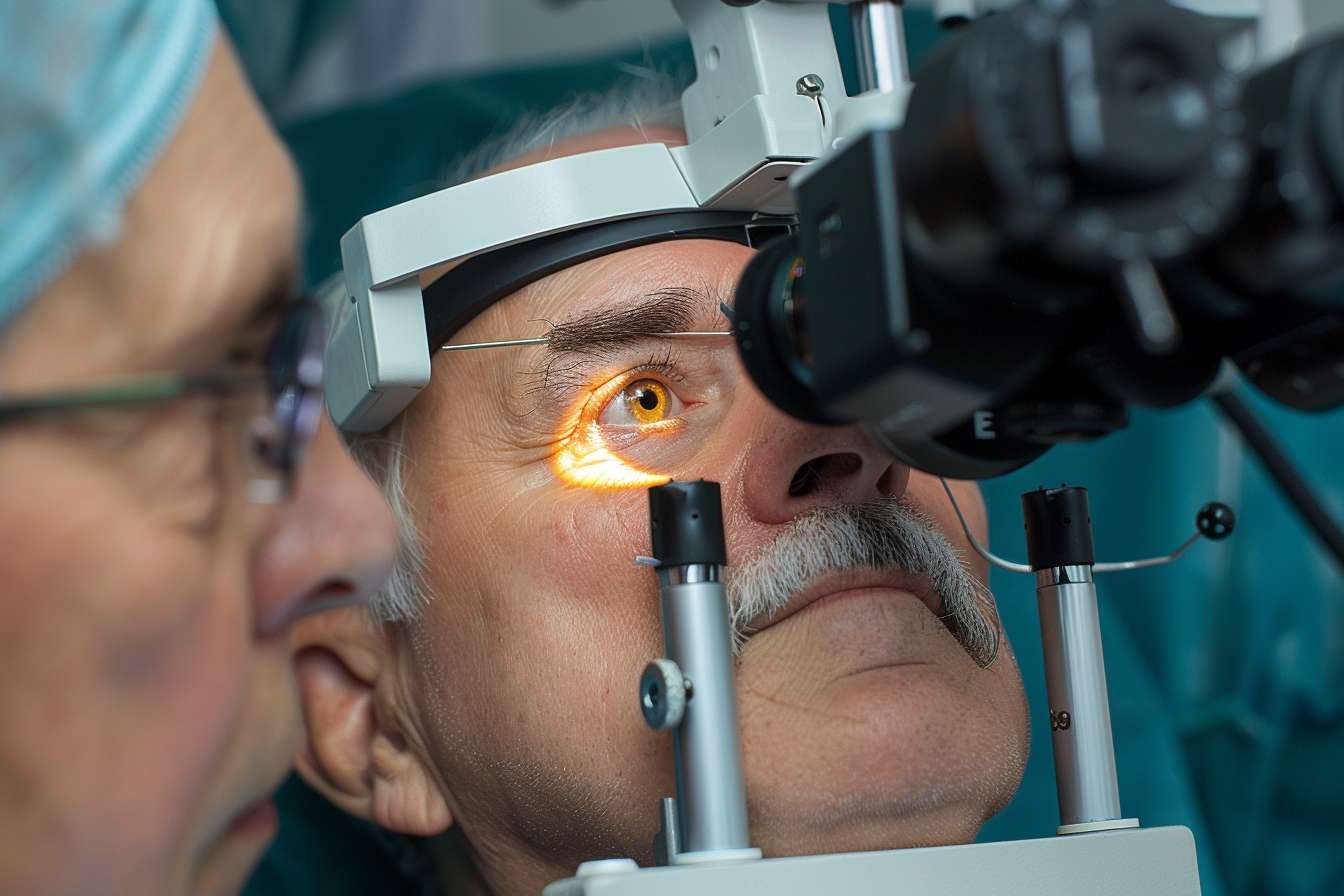How Much Does Cataract Surgery in a Private Clinic Cost in the UK
Private cataract surgery in the UK typically costs between £2,000 and £4,500 per eye, depending on the clinic, surgeon expertise, and type of intraocular lens chosen. While NHS treatment is available, many patients opt for private care to reduce waiting times and access premium lens options. Understanding the factors that influence pricing helps patients make informed decisions about their eye health treatment.

Common Symptoms That Indicate Cataract Surgery
Cataracts develop gradually, often making symptoms subtle at first. Cloudy or blurred vision is the most recognizable sign, typically affecting distance vision initially before progressing to near vision difficulties. Many patients describe their vision as looking through a foggy window or experiencing a yellowish tint to colors.
Night vision problems frequently emerge early, with increased sensitivity to bright lights and glare from car headlights or streetlights. Double vision in one eye and the need for frequent prescription changes can also signal cataract development. When these symptoms begin interfering with daily activities like reading, driving, or working, surgical intervention becomes necessary.
Types of Cataract Surgery Performed in the UK
Phacoemulsification remains the gold standard for cataract removal in UK clinics. This technique uses ultrasound energy to break up the cloudy lens before removal through a small incision, typically measuring 2-3mm. The procedure usually takes 15-20 minutes per eye and allows for quick recovery.
Extracapsular cataract extraction is occasionally used for very dense cataracts where phacoemulsification may not be suitable. This method requires a larger incision but achieves similar visual outcomes. Most UK surgeons prefer phacoemulsification due to its minimal invasive nature and faster healing times.
Femtosecond laser-assisted cataract surgery represents the newest advancement, offering enhanced precision in lens fragmentation and capsulotomy creation. While not universally available, some private clinics now offer this technology as a premium option.
Pre-Surgery Evaluation and Eye Health Assessments
Comprehensive eye examinations precede all cataract surgeries in reputable UK clinics. These assessments include visual acuity testing, dilated eye examinations, and biometry measurements to determine the correct intraocular lens power. Corneal topography and optical coherence tomography may also be performed to identify any underlying retinal conditions.
Medical history reviews ensure patients are suitable surgical candidates, particularly regarding medications like blood thinners or conditions such as diabetes. Pre-operative consultations typically occur 1-2 weeks before surgery, allowing time for any necessary adjustments to medications or additional testing.
Cataract Surgery Costs in the UK and Insurance Considerations
Private cataract surgery costs vary significantly based on several factors. Standard monofocal lens procedures typically range from £2,000-£3,000 per eye, while premium multifocal or toric lenses can increase costs to £3,500-£4,500 per eye. Additional fees may apply for pre-operative assessments, post-operative care, and any complications requiring further treatment.
Many private health insurance policies cover cataract surgery, though coverage varies by provider and policy type. Some insurers require evidence that vision significantly impacts daily activities before approving treatment. Patients should verify their specific coverage details and any excess fees before proceeding.
| Clinic/Provider | Standard Lens Cost | Premium Lens Cost | Additional Services |
|---|---|---|---|
| Moorfields Private | £2,800-£3,200 | £4,200-£4,800 | Comprehensive aftercare included |
| Optegra Eye Health | £2,500-£3,000 | £3,800-£4,500 | Free enhancement guarantee |
| Vision Express Surgery | £2,200-£2,800 | £3,500-£4,200 | Payment plans available |
| SpaMedica | £2,400-£2,900 | £3,600-£4,300 | Same-day bilateral surgery option |
Prices, rates, or cost estimates mentioned in this article are based on the latest available information but may change over time. Independent research is advised before making financial decisions.
Tips for Choosing an Ophthalmologist or Surgery Center
Selecting the right surgeon and facility significantly impacts surgical outcomes and patient experience. Research surgeon qualifications, including Royal College of Ophthalmologists fellowship status and subspecialty training in cataract surgery. Experience matters - surgeons performing hundreds of procedures annually typically achieve better results than those with lower case volumes.
Clinic accreditation through organizations like the Care Quality Commission ensures adherence to safety standards. Modern equipment, including advanced biometry devices and premium intraocular lenses, indicates a commitment to current surgical techniques. Patient reviews and before-and-after testimonials provide valuable insights into real experiences.
Consider practical factors like location, parking availability, and appointment scheduling flexibility. Some clinics offer evening or weekend appointments, which may be convenient for working patients.
Pain Management Comfort during Surgery and Recovery Timeline
Cataract surgery typically involves minimal discomfort, with most procedures performed under topical anaesthesia using eye drops. Some patients may receive a mild sedative to promote relaxation. The eye remains numb throughout the procedure, though patients may experience slight pressure sensations.
Post-operative pain is generally mild, managed effectively with over-the-counter medications if needed. Most patients report only minor irritation or grittiness for 24-48 hours following surgery. Prescription antibiotic and anti-inflammatory drops prevent infection and reduce swelling during the healing process.
Recovery Timeline and Post-Operative Care
Initial vision improvement occurs within hours of surgery, though optimal results may take several weeks to achieve. Patients typically return for follow-up appointments at one day, one week, and four-six weeks post-surgery to monitor healing progress and address any concerns.
Activity restrictions remain minimal - patients should avoid heavy lifting, swimming, and eye rubbing for approximately two weeks. Most people return to work within 2-3 days, though this varies based on job requirements and individual healing rates. Driving is usually permitted once vision meets legal standards, often within a few days to a week.
Proper eye drop administration is crucial for preventing complications. Patients receive detailed instructions on drop schedules and hygiene practices to ensure optimal healing outcomes.
This article is for informational purposes only and should not be considered medical advice. Please consult a qualified healthcare professional for personalized guidance and treatment.




